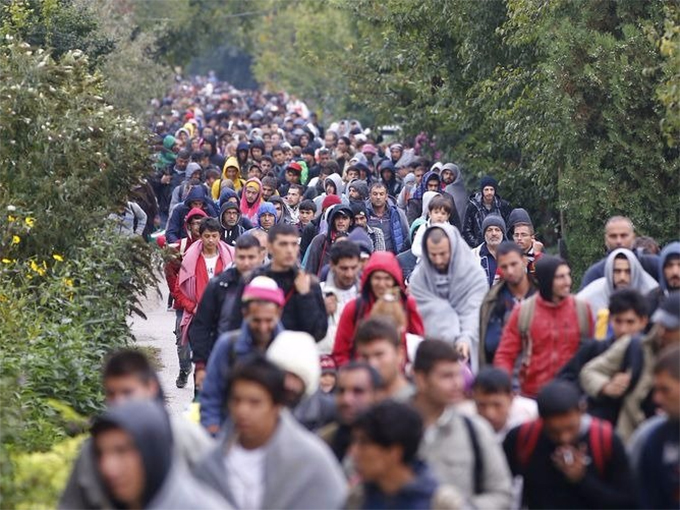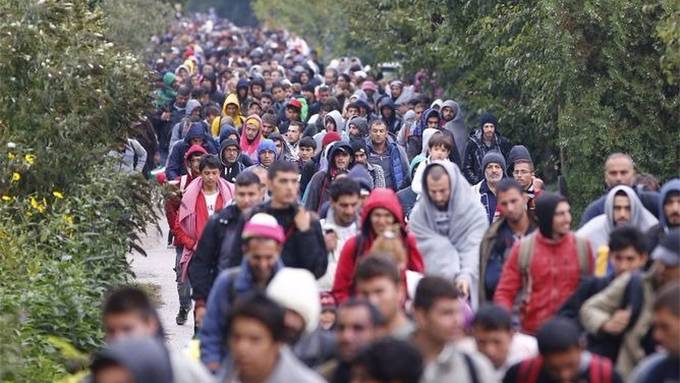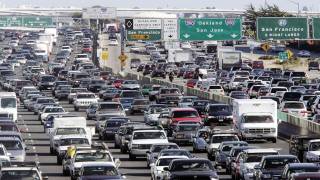Financial Times: Mass Immigration Is Unstoppable
Source: breitbart.com

The Financial Times has today published an article insisting that mass immigration from Africa and Asia into Europe is here to stay, so we’d better all get used to it.
The article goes so far as to suggest that the migrant crisis currently engulfing Europe is some sort of payback for European colonisation in the 18th and 19th Centuries, and predicts, with no sense of loss, that European culture will be overwhelmed.
Penned by the paper’s chief foreign affairs columnist, Gideon Rachman, the article spells out that, thanks to global demographic changes, Europeans are and will increasingly make up a rapidly diminishing proportion of the world’s population. That, paired with the ease of travelling to Europe in the modern age means that inward migration is set to be a way of life for the foreseeable future.
Not only does Rachman therefore see attempts to control immigration as futile, he further believes that attempts to preserve European culture are necessarily doomed to failure. European values, he believes, are modern liberal values with shallow roots which will not withstand an influx of what he terms Middle Eastern and African conservatism. That, he suggests, will be liberalism’s triumph.
“The migration of Africans, Arabs and Asians to Europe represents the reversal of a historic trend,” he writes.
“In the colonial era Europe practised a sort of demographic imperialism, with white Europeans emigrating to the four corners of the world. In North America and Australasia, indigenous populations were subdued and often killed — and whole continents were turned into offshoots of Europe. European countries also established colonies all over the world and settled them with immigrants, while at the same time several millions were forcibly migrated from Africa to the New World as slaves.”
Drawing a direct comparison between the migration methods of European colonialists, many of whom travelled for many months to establish new lives in the colonies, and the migrants currently heading into Europe, he tacitly intimates that Europe is now being colonised itself by an alien culture.
“When Europeans were populating the world, they often did so through “chain migration”. A family member would settle in a new country like Argentina or the US; news and money would be sent home and, before long, others would follow.
“Now the chains go in the other direction: from Syria to Germany, from Morocco to the Netherlands, from Pakistan to Britain. But these days it is not a question of a letter home followed by a long sea voyage. In the era of Facebook and the smartphone, Europe feels close even if you are in Karachi or Lagos.”
As a result, and despite the promises of European politicians in response to the horror of their citizens who know they are being colonised, resistance is futile.
The EU’s official policy is to allow genuine asylum seekers in, while returning illegal economic migrants. But the policy is doomed to failure. Not only are the number of countries deemed to be at conflict, either internal or external rising, creating more legitimate refugees, but Europe has so far proved itself incapable of dealing with illegal economic migrants who should, by rights, be sent home. Germany has only deported approximately 30 percent of its failed asylum seekers, for example.
Furthermore, Rachman writes, “once large immigrant populations are established, the right of “family reunion” will ensure a continued flow. So Europe is likely to remain an attractive and attainable destination for poor and ambitious people all over the world.
The outcome, he believes, is not only inevitable, but should be embraced.
“Europe’s debt-ridden economies need an injection of youth and dynamism. Who will staff their old-age homes and building sites if not immigrants from the rest of the world?
“But even those Europeans who make the case for immigration tend to argue that, of course, newcomers to the continent must all accept “European values”. That may be unrealistic, partly because many of these values are of relatively recent vintage.
“[P]ost-imperial, post-Holocaust Europe is much more wary of asserting the superiority of its culture. It has replaced a belief in its civilising mission and the Bible with an emphasis on universal values, individual rights and international treaties.”
“The big question in the coming decades is how Europe’s faith in universal liberal values will withstand the impact of mass immigration.”
Those decades will be characterised by “a battle”, he postulates, between “unpopular” conservatives and those concerned with preserving European culture – a group he dubs “the nativists” – and liberals.
He predicts: “In the long run I expect the nativists to lose, not because their demands are unpopular but because they are unenforceable.
“It may be possible for island nations surrounded by the Pacific Ocean, such as Japan or Australia, to maintain strict controls on immigration. It will be all but impossible for an EU that is part of a Eurasian landmass and is separated from Africa only by narrow stretches of the Mediterranean.”
For some, it appears, the destruction of the European way of life cannot come too soon.
Source: breitbart.com






















